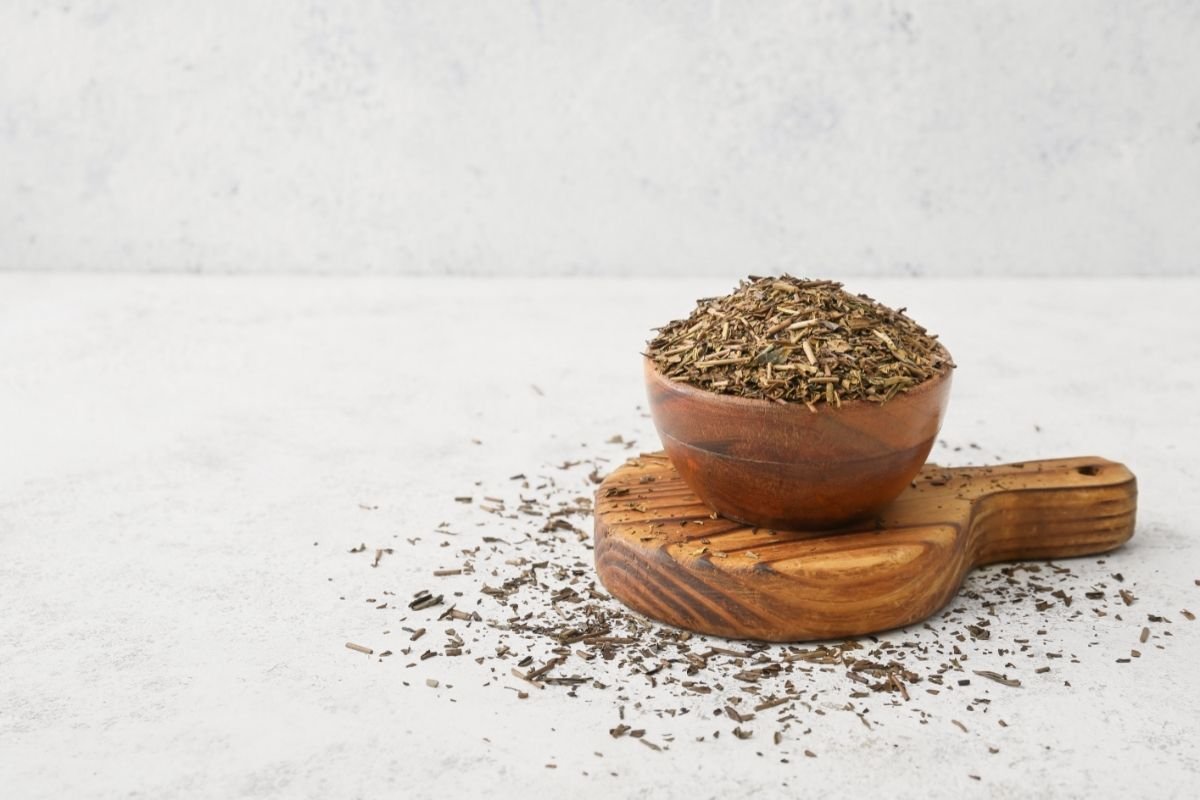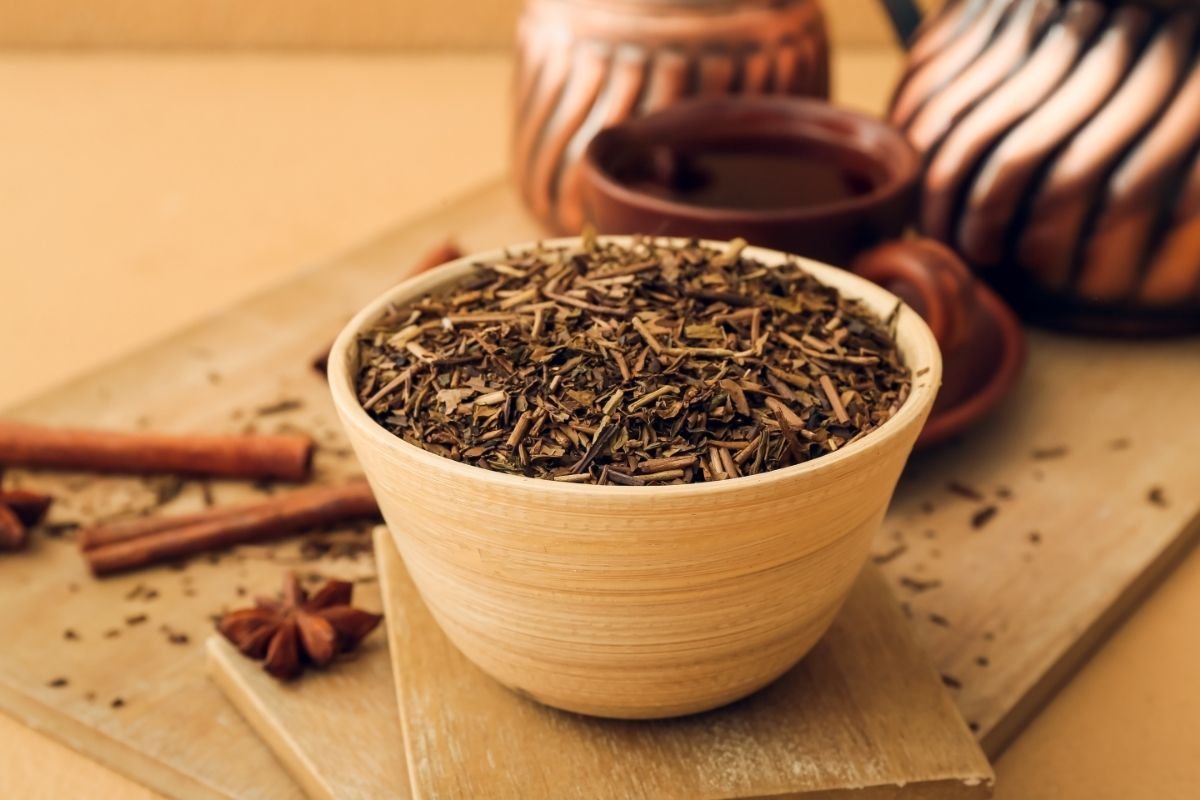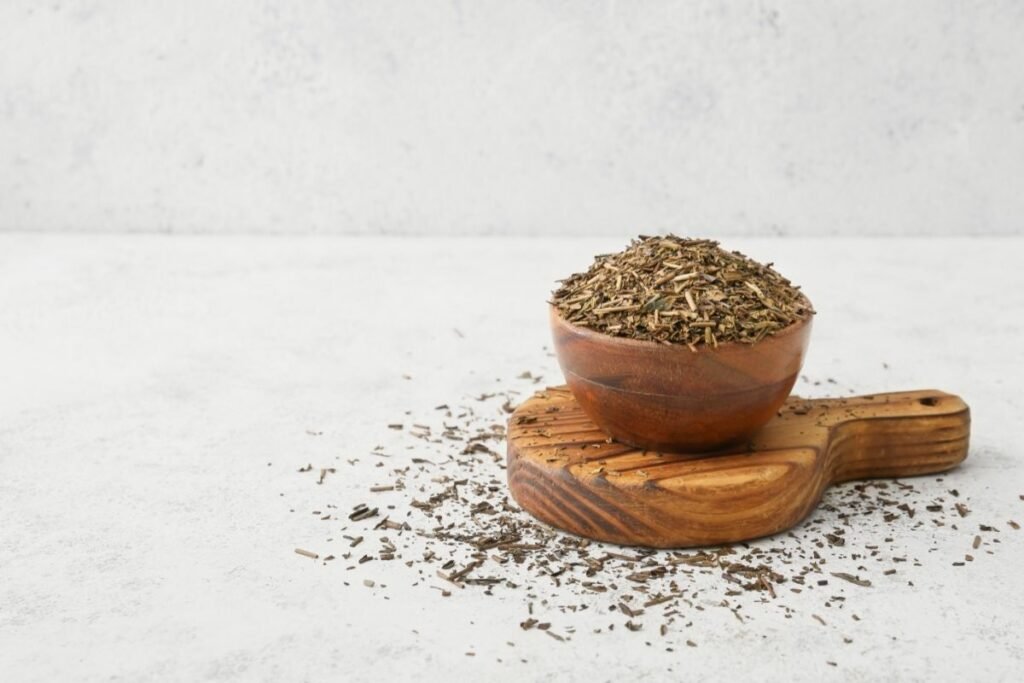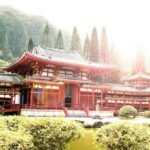Japan is a beautiful country known for its stunning landscapes, advanced technology, and delicious food. And while visiting this island can be a treat, this does not mean that immersing yourself in Japanese culture is easy.
Located on the other side of the world, Japan has its own customs and traditions that should be respected when going there on vacation.

Whether that be taking your shoes off before entering a home or greeting each other with a bow.
Of course, one thing that many tourists have to contend with is the food and drink, which can be confusing if you don’t know the exact ingredients. For example, you may wonder if mochi is vegan-friendly or if hojicha contains caffeine.
So, if you have ever wondered about this roasted green tea, then you have come to the right place. In the following article, we have compiled some interesting information about the signature beverage, so that you can learn more about its content.
Just take a look down below and you will find everything you need to know about hojicha and its ingredients…
What is Hojicha?
In recent years, hojicha has taken the market by storm, leading many people to question the drink and its origins (see also ‘Does Ramune Have Caffeine?‘).
In basic terms, hojicha is a Japanese green tea that comes from the same plant as matcha, although instead of being steamed it is roasted in a porcelain pot using charcoal.
The final result is a brown-green tea that is known for its warm color and nutty taste, which is said to carry notes of caramel and smoke.
Like many green teas, hojicha boasts a range of health benefits, as it contains a good source of antioxidants that can help to prevent cell damage and aging.
These antioxidants can also ease digestion and boost your metabolism, with the tea also containing theanine to promote calmness and concentration.
Why is Hojicha Roasted?
Similar to ceremonial grade matcha, hojicha will commonly take the form of a fine powder, which is immediately packaged after it has been ground.
The difference between matcha and hojicha is that the latter can also be produced from green tea plants that have not been grown in the shade.
The gathering of hojicha tea will usually take place later in the season, with some harvests also including the stems and twigs.
The roasting process plays an important role in the green tea’s identity, as it is the main distinguisher between hojicha and matcha.
The tea was first roasted in Kyoto in the 1920s, which resulted in a green tea that provided a smoother and calmer experience than other blends on the market.
Because of this, hojicha is often the tea of choice among older people, pregnant women and small children.
Does Hojicha Have Caffeine?
Of course, one of the main health claims surrounding hojicha is its low caffeine content, which is the result of the roasting process.
In comparison to other green teas, hojicha is known for its lower levels of caffeine, which is why it is considered a healthier alternative.
However, it is important to note that caffeine is not necessarily detrimental to your health, as the substance can have numerous benefits when consumed in moderate amounts.
Because of this, many people now assume that roasted green teas contain less caffeine than others, something that was proven by recent studies in Japan. However, this does not apply to all green teas on the market.

For example, hojicha contains more caffeine than bancha, a green tea that comes from the same plant as the titular blend.
Studies have shown that while bancha boasts a caffeine content of 1.55%, hojicha has an average of 1.76%.
But how can this be? Well, it seems that the roasting process has very little effect on the tea’s natural caffeine content, which is already low when compared to other blends on the market.
Does Hojicha Have Antioxidants?
Green tea is well known for containing high levels of antioxidants, which include catechins and EGCG.
Because of these compounds, green tea is said to protect your cells from damage and cancer-causing radicals, with the nutritious beverage also working against heart disease, liver disease, and diabetes.
While green tea is renowned for its health benefits, this does not mean that the same can be said of its roasted blends.
In fact, studies have shown that roasted green teas contain fewer antioxidants than their natural counterparts, which severely reduces their benefits and nutritional value.
In these studies, it was discovered that roasting green tea at high temperatures can greatly reduce the final antioxidant concentration, with the extreme heat destroying the catechins in the fresh leaf.
Because of this, it is recommended that you only consume natural green teas, especially if you are on a diet and require an antioxidant boost.
Can Hojicha Cause Strokes?
While it may seem like a strange notion, there is actually a well-documented relationship between green tea consumption and stroke risk.
Of course, this does not mean that green tea can cause strokes. Instead, the beverage can significantly reduce the risk of stroke and improve your overall health. In fact, green tea can even reduce the chances of dying should you suffer from a stroke, while also preventing the chances of a second occurrence.
However, this does not mean that the same characteristics are shared by roasted blends, as studies have shown that hojicha does not reduce or prevent the risk of stroke.
And, while this can be disheartening to learn, it is also important to note that hojicha cannot cause strokes and will have little effect on your body.
While it can be comforting to learn that hojicha is not harmful, you also need to consider that it will not provide the same protection as natural green teas.
Final Thoughts – Why is Hojicha Popular?
Because of its woody aroma and natural sweetness, hojicha has taken the market by storm, with the substance now being used in cafes and restaurants across the world.
And while the tea is still used to make drinks, it also features in a range of dishes from cheesecakes to pasta.
As well as its delicious taste, hojicha also comes with numerous health benefits, although they are somewhat reduced when compared to unroasted blends.
For example, one of the most notable features of this tea is its low caffeine content, which makes it a popular choice among those who choose to avoid the stimulant.
Of course, hojicha can taste delicious when used to make hot or cold drinks, which is why we recommend sampling the tea in a classic latte for your first time.
- What Is a Maiko? - July 13, 2025
- What Does Domo Arigato Mean? - July 12, 2025
- What Does Naruto Mean? - July 12, 2025









